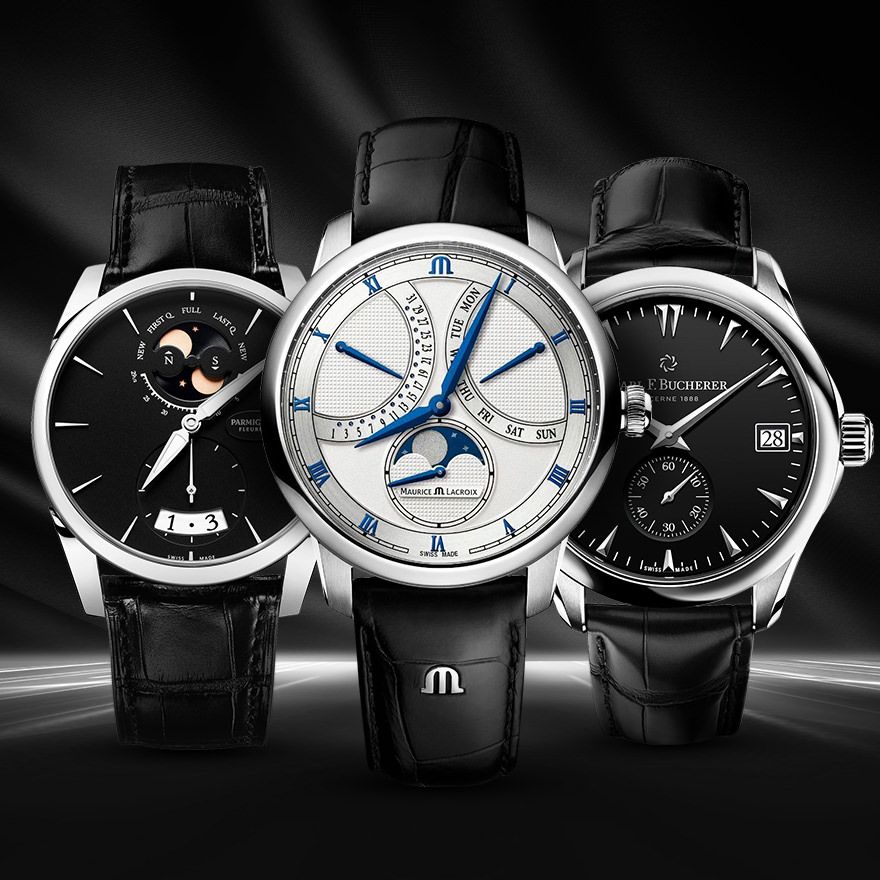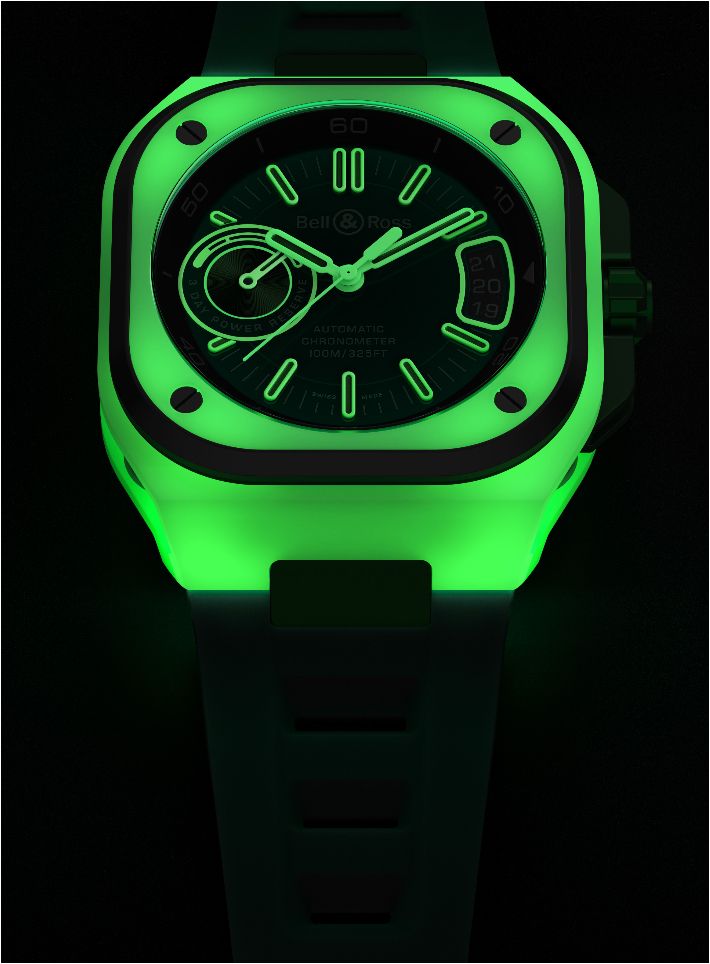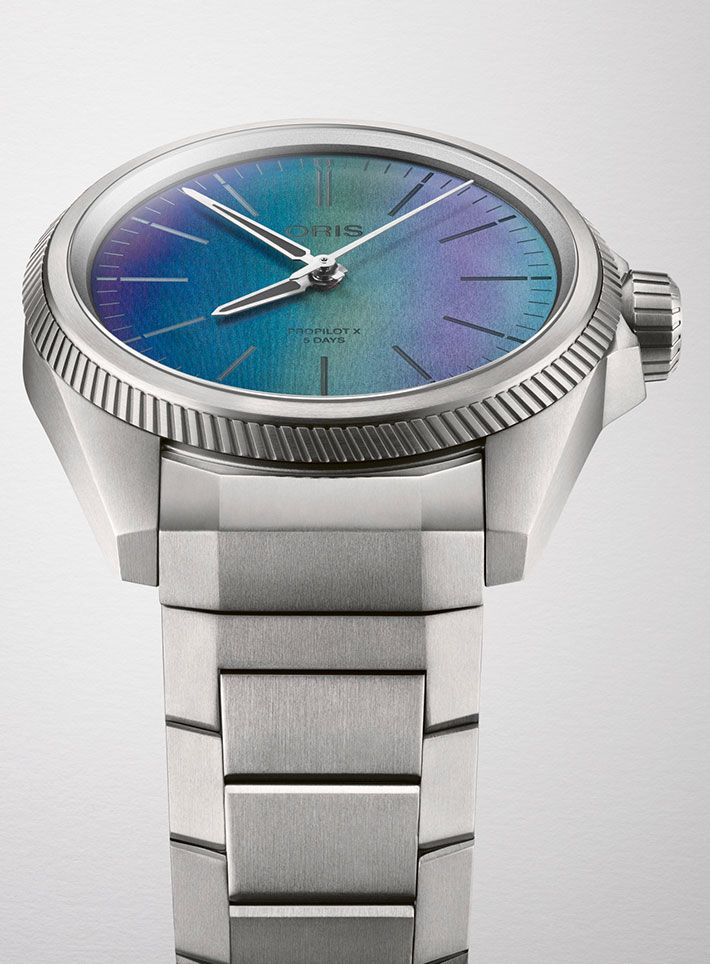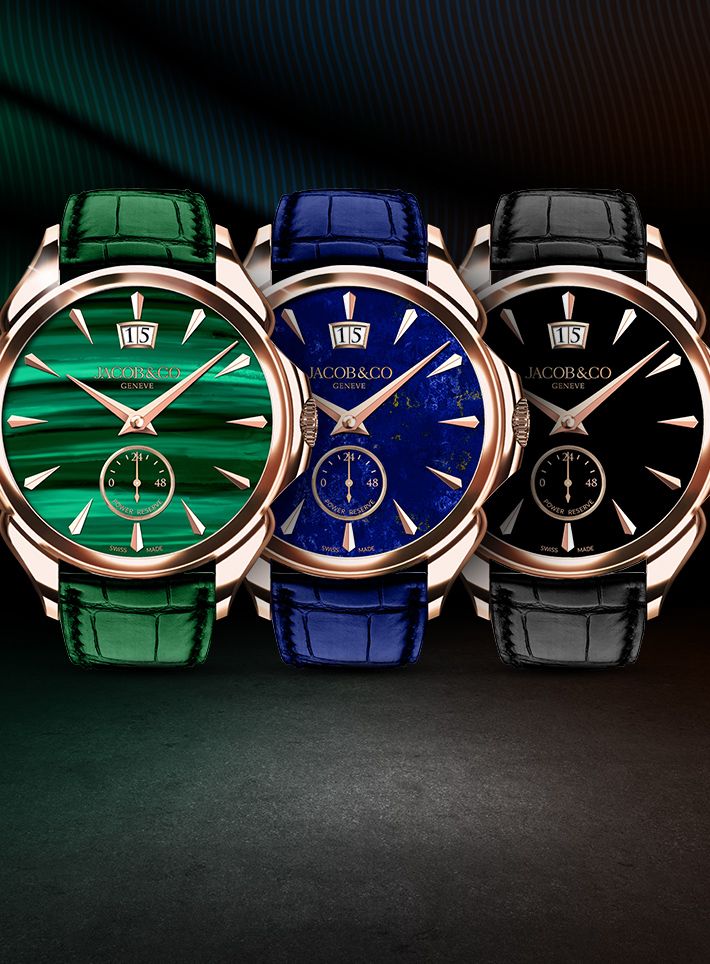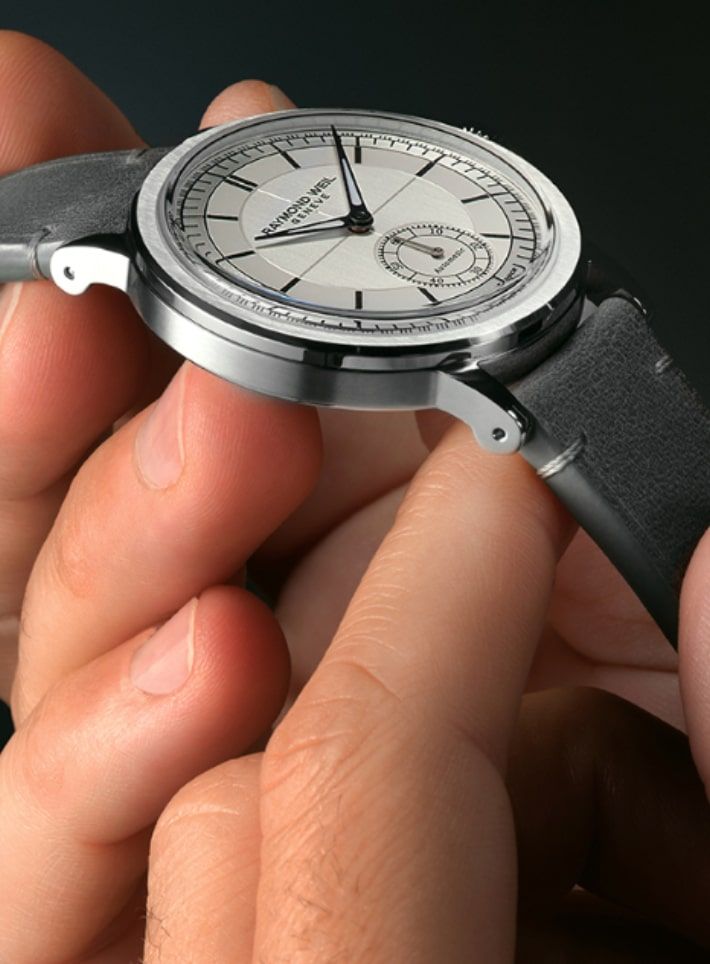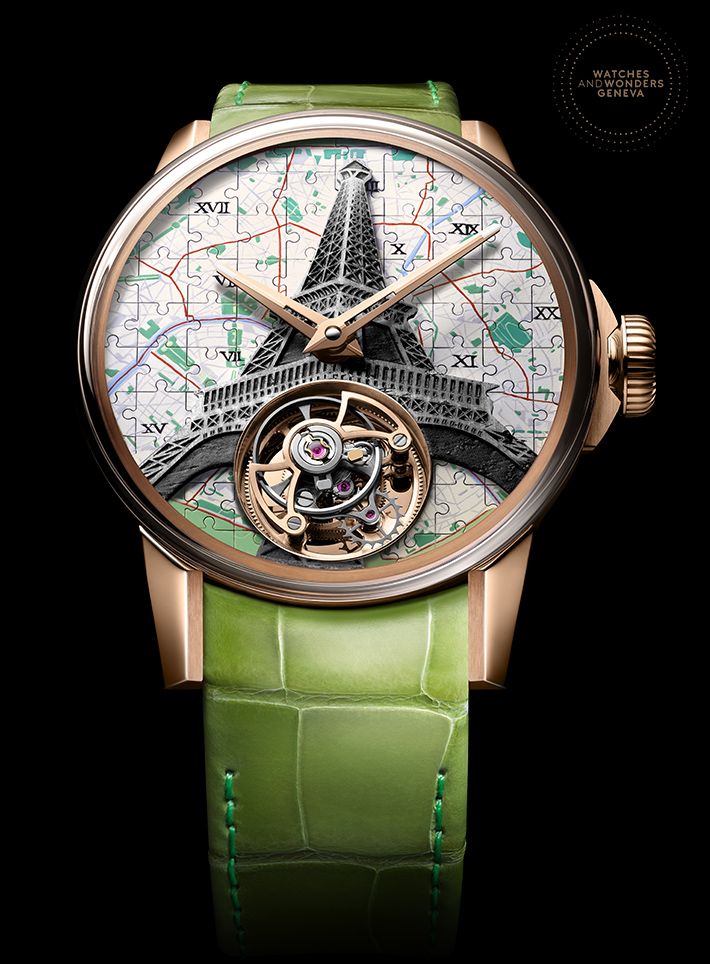Q&AAn interview with the Prodigy of the Watch Auction market – Mr Aurel Bacs
The prodigy of the watch auction market
May We Recommend
What can we say about Aurel Bacs that hasn’t been said before. It’s all true, that he is the most successful auctioneer in the world, the most sought-after person by vintage watch collectors and that watching him conduct an auction is pure perfection.
As head of the watch department of Christie’s, what he achieved in his 10 years there is nothing short of spectacular. From $8 million in 2003 to a staggering $126 million last year in annual sales, the watch world is left stunned by him setting record after record. It is estimated that Bacs has auctioned watches worth almost $1 Billion in his watch auction career. Vintage watches have never been more in demand and Bacs’ knowledge and passion for them is unmatched.
Being a member of the jury of Geneva’s prestigious “Grand Prix d’Horlogierie” (GPHG), Aurel Bacs had travelled down to India for the watch showcase hosted by Ethos Watch Boutiques, where we were fortunate enough to spend time talking to him about watches and his journey so far.
Although there is nothing better than hearing the charismatic watch auctioneer in person, we strongly encourage our readers to read through this very interesting interview to be able to truly understand the man whose passion has taken the watch world by a storm.
MS| How did you come to be so passionate about watches and where did your journey in the watch industry begin?
Bacs| My first contact with collectors’ watches was when I was 12 years old. My father, who is an architect but probably would have been equally good as an engineer, always had a fascination for any mechanical goods. He loved cars, we had together electric trains – and he also knew how to fix many of them. He always liked watches. When I was 12… we go back to the early 80s, he took me along to auctions, to collectors’ meetings, at a very young age also of the collector’s market. First I was just intrigued, but didn’t quite understand it, and then thanks to good explaining, showing me what is a good watch, what is a bad watch, I started to learn and appreciate nice watches.
I think, already when I was 16 or 18, I would spend more time thinking of watches than what teenagers normally do. I finished high school, went to university where I studied law and business, but already back then I spent more time running after watches, hunting watches, reading about watches than studying, which made me and my professors not the best of friends.
It was in 1994 that a distinguished auction house looked for a specialist for the Geneva department. Without any professional experience in that field, just learning by doing and reading, I said, let’s see if I am at their level, the level they expect from a specialist. After several interviews, they offered me the job. I had the tough choice between this and finishing my studies; I thought I was maybe becoming a lawyer. I eventually took the job. After two weeks I really hated it. I couldn’t stand it anymore and I thought I was going back to university to finish my studies. But then, somehow I said to myself, you’re not giving up after two weeks. To learn you have to work harder. And now it’s 20 years later, and it’s become my profession.
I think the day I don’t love watches any more, is probably the day I fear most in my life. Because everything is built around them. My many friends, my wife is into watches, it’s a 24/7 thread throughout my life.
“The passion for collecting is being in love with a piece of culture, object, and the desire of assembling a puzzle that is probably never complete.”
MS| How does a person progress from being fond of watches to a collector of watches?
Bacs| Your question is a very good one, and one of the most difficult ones to answer because to many, collecting means having several of something.
There’s plenty of people whom I know with 20 watches, but I don’t think they should be described as collectors. A collector is… collecting, whether its watches or stamps or wine or art because he has that inner fire. And that inner fire that you call, when you collect, passion, well in private you call it, towards your spouse, love. It just happens. It’s sometimes a click, it’s like a flashlight that ignites something and you cannot stop it. It’s unbelievable, it’s stronger than you, it’s like an addiction. A good addiction. Because I don’t know many collectors who are unhappy about being a victim of their own passion. Now a collector is not just an addict. A collector is mixing aesthetics, the intellectual components, he’s studying a lot, he’s a hunter. But like an Indiana Jones, he’s looking for the adventure. He could have a very cozy life at home, but once to go out and challenge and explore and prove himself and the world that it is possible to find the impossible, the holy grail. So, it’s a mixture. Many more intelligent people than me have written books about it and at the end they say, “I still don’t understand what collecting is.” It’s being in love with a piece of culture, object, and the desire of assembling a puzzle that is probably never complete.
MS| Which is the one timepiece that has always been on your wishlist?
Bacs| There are too many that I could mention now. And, to some extent, I can name a few that are museum pieces that are just unreachable. Whether it is Abraham Louis Breguet’s most complicated watch, the Mary Antoinette, which is in a museum in Jerusalem. You know, it was stolen and for many many years… there’s the old genius of Abraham Louis Breguet in that watch.It is maybe a Patek Phiippe Henry Graves Super complication, but it can also be a specific Rolex, an Omega that was on the moon, a Rolex that was featured in a James Bond movie. There are plenty that to me are historical. Museum quality. But thankfully, I think there are more watches out there that I will desire when I discover them that I haven’t yet discovered. And that is actually the beauty of the journey.
As a collector, as a passionate, when you desire without knowing what you desire. That’s what some call being hungry. That’s called restless… It’s that hunger to wake up in the morning and say, “I cannot wait what today will bring.” Now in terms of horology, there are wristwatches of course, that I think are as close as perfect when it comes to design. I think many brands have created something close to perfect. I happen to like many of the Gerald Gentley designs. But Gerald gent, I mean the gentleman who designs Nortillus, the Royal Oak, the Engineer by IWC. I think he’s revolutionized the entire segment where he managed to make the luxury high end watch become an item for daily wear, young and dynamic. But of course I also like many of the sports models of Rolex. There’s too many I could mention. Cartier has fantastic designs, timeless designs, the Reverso by Jaeger-LeCoultre, the Speedmaster by Omega. There’s just so many designs that will be there like a temple for generations and centuries.
“Culture is what makes mankind differentiate itself from animals. And bees and microbes. It is who we are and to a lovely watch on the wrist is an expression of culture and mankind.”
MS| Should people consider watches as an investment?
Bacs| My first answer is yes, of course. But then I will ask you a question. How do you define investment? Do you define an investment as something where I put down ten thousand dollars and in one year from now it’s eleven thousand dollars? Or do you put it down in a different sense where the dividend that we all expect when we invest money into something cannot be measured in dollars? But in happiness, in well being, in quality of life, I hope first of all, that watch collectors are thinking of their passion, and pleasure, and consequently the daily enjoyment of a fine watch as their dividend. Why do we drink a nice glass of red wine when water also keeps our lips wet? Why do we enjoy a nice silk blouse when we could also use a mass-produced cotton shirt? Because it gives us pleasure. Why do we have art on the wall when actually it does nothing practical? If we look here we have some wonderful drawing and water colours and etchings behind us. They of course cover the wall but that’s not the real purpose. They give us pleasure. And that, I think in a broader context can be called culture. Culture is what makes mankind differentiate itself from animals. And bees and microbes. It is who we are and to me a lovely watch on the wrist is an expression of culture and mankind.
MS| What is it about a watch that makes it a valuable vintage piece?
Bacs| A vintage watch has a market and the market is driven by a simple economic rule, which is called supply and demand. Supply and demand is defined by a number of people willing to sell something and a number of people willing to buy something, and it is defined or narrowed by the quantity of units available and the price is a consequence of that trail. Consequently, a vintage watch can be 200 years old and worthless when it is not appealing to anyone, when there’s too many on the market. Hence the equation I mentioned before of supply and demand is to its disadvantage. But it can be very favourable for a vintage collector’s watch when you have five known pieces in the world in good condition and ten collectors who dearly desire one for their collection. And then when such an items comes to auction or is offered in public, they bid against each other and can easily double, triple or quadruple the price.
There are watches that have been made in the last ten or twenty years, that today demand double or triple of retail price, that were never made with the intention to make it a profitable investment. But that simply have been so beautiful, so well-made, so perfect, that there are more people who regret not having bought one then than there are people ready to part. And then there is a shortage on the market and as we both know, there is so much wealth in today’s world, that I have had many collectors say, when I ask them why did you pay triple the market value of that watch, he said, “I can always go to the bank and pick up 500,000 dollars in cash, but I know that it will take me another 30 years until the next opportunity comes up to buy that watch for my collection.” So suddenly money loses its relative value, and passion and satisfaction become the driving force.
